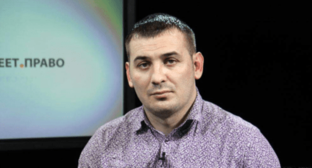29 January 2004, 19:07
Ingushetia: prospects of economic development
Presently, Ingushetia is the least developed regional economy in Russia. Over 70% of the republican budget is maintained at the expense of federal subsidies. To a great extent, the reason for the unfavorable situation in the republican economy can be found in the undeveloped industrial infrastructure and absence of profitable manufacturing facilities. The young republic actually had to start from scratch after an administrative division of the two republics when Chechnya kept most industry.
To establish its own production and reach a higher development level, the republic needed substantial investments which neither the republican nor the federal budgets were able to provide. To attract foreign investments to Ingushetia, the region needed to provide conditions that would to some extent interest businesspeople.
Passed in 1994, the Free Economic Area Ingushetia Act became the first move to make the republic's investment climate more favorable. This program guaranteed that everyone who would like to start a business in the offshore area of Ingushetia would be exempt from Russian taxes and receive a number of other privileges providing real advantages for business in Ingushetia. However, investors did not take due interest in the project. The beginning of military action in Chechnya played a part in this, too; most potential investors viewed Ingushetia as an emergency area with an unfavorable investment climate because it was Chechnya's neighbor.
The Economic Favor Area Ingushetia was closed after three years of existence. The project's potential had never been exhausted.
However, attempts to solve the foreign investment problem were not abandoned, and in 1998 they resulted in a joint project with Yugoslav-based Keramos for building a brickyard in Nesterovskaya, Sunzha district. The brickyard currently makes about 20 million high-quality bricks a year.
A contract was drawn in May 1998 with a Turkish building company for joint construction in Magas, Ingushetia. Under the four-year contract, the Turkish party provided Ingushetia a USD80-million credit, which resulted in a series of administrative buildings erected in Magas. Several more facilities went into operation in Magas in 2003, including the buildings of Ingushetia's Tax Service and the Federal Security Service for Ingushetia, thanks to the republic's new leader.
Today, the republican authorities also see the task of expanding Ingushetia's investment base as one of their economic policy priorities. As is known, this issue became the reason for dismissing the republican government in July this year.
"We need people of some initiative, capable of setting and implementing objectives, and ensuring a favorable investment climate in the republic," said Murat Ziazikov in one of his interviews about the government's dismissal.
A program was adopted in Ingushetia in September 2001 to provide state support to small and medium business, developed by the Regional Foundation for Competition Development in Ingushetia. The program provides for cutting down of administrative and bureaucratic faultfinding, which is expected to facilitate favorable conditions for development of small and medium business in the republic and promote growth in the number of businesses.
More than 2,000 small businesses were operated in Ingushetia in early 2001. Yet their contribution to gross regional product was insignificant because of unprofitable production. A decision was made then to make more concessions and support businesspeople. A special decree of Ingushetia's government provided for 0.5% of budgetary spending from 2003 to be allocated to refund the interest rates on credits businesspeople obtained to carry out their business-plans and investment projects in the republic. Those moves facilitated growth in the number of businesses, so there are more than 2,500 small companies in Ingushetia presently, working in the goods and services area. This in turn does not only imply new taxes for the republican budget, but also new jobs for republican residents. Thus, Ingushetia's Statistics Committee says the budget received 497 million rubles from goods and services in the first half of the year.
There are more than 2,500 small companies in Ingushetia presently. The republican budget provides over 70 million rubles to credit small business alone. The total amount of credits exceeds 70 million rubles. Production in the private sector grew by more than 10% comparing with the previous year. Established by Ingushetia's Economy Ministry and Chamber of Commerce and Industry, a Small Business Training Center went into operation in the republic in January. Despite investors continue to think it risky to put up funds in the republic, total investments attracted to Ingushetia in 2002 was 49.5 million rubles. This money was used to build two apartment houses in Magas. There are plans to use extra-budgetary funds to build 100 houses for refugees from Chechnya willing to stay in Ingushetia.
Underway is another big project involving an international organization - the first segment of the airport Magas is being completed, the funds provided by the UN. According to Mr. Dzaurov, airport director, this project will make a substantial contribution to the republican budget. "The airport's strategic location and the opportunity to use local fuel will make it possible to employ it in air transportation and transit flight service," says Dzaurov.
The Russian South economic development program also provides much aid in carrying out the most promising projects. A glassworks in Sagopshi, Malgobek district, is under construction as part of this program. The glassworks' planned production capacity exceeds 4,000 bottles a day. Considering that a sweet-drink facility is being completed in Orjonikidzevskaya, there is demand for the glassworks' products even now.
Reconstruction of the Nazran Plant of Small-Power Electric Motors, presently practically idle, has become a priority. The republican budget has allocated a 16-million ruble credit this year, and the plant has already repaid 4 million rubles.
Talking about development prospects for the republic, Ingushetia's Prime Minister Timur Mogushkov observed it was planned to double the region's gains by putting a series of highly profitable facilities into operation next year. Thus, the most promising projects include launching of an electronic equipment plant to manufacture television transmitters and antennas; and reconstruction of the Kavdolomit facility that manufactures dolomite flour and handles mining and processing of sandy gravel.
An agreement on trade and economic cooperation with the Republic of Belarus has been signed. Underway is discussion of mutually beneficial cooperation with a series of Scandinavian states and neighboring nations.
Author: Malika Suleymanova, CK correspondent Source: Caucasian Knot




